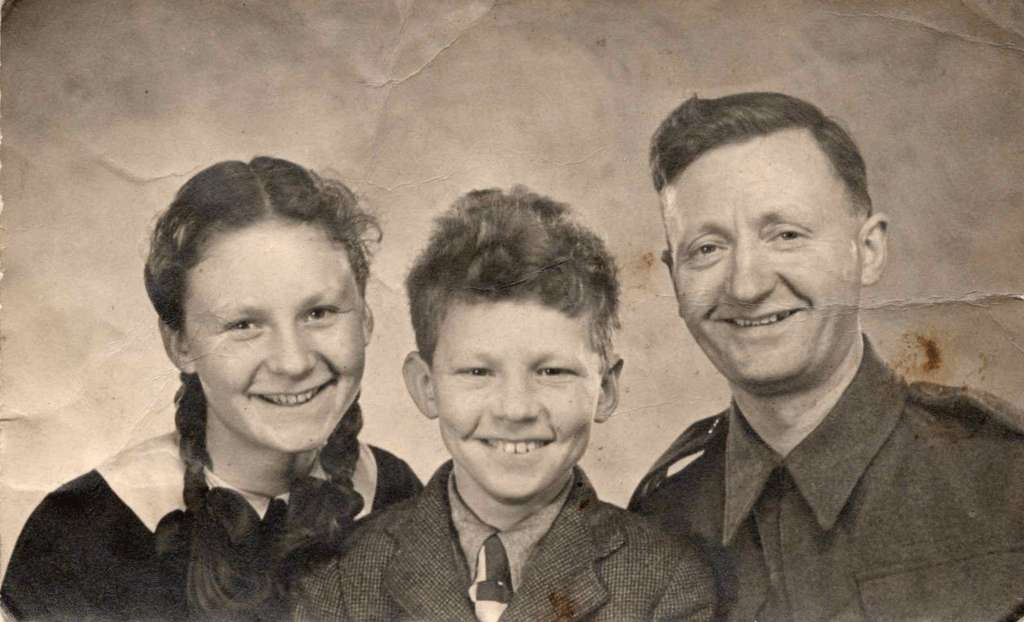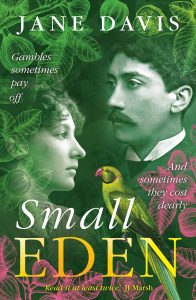The First Lady Star of the Music Halls
A blog about Annie Adams
I was asked recently if I think that writing is an act of preservation. I have to say I do. I’m related on my father’s side of the family to the music hall star, Annie Adams. I haven’t been able to licence a photograph for publication, but the V&A has an image of Annie in their collection, which you can see here. Although she died thirty years before my father was born, he was very proud of his connection. He kept her memory alive by hanging two of her illustrations from her concert programmes in the downstairs loo (which I’m sure would have thrilled her). I grew up with his stories about how her husband Harry Wall used to lift the hems of her extravagant silk dresses to stop them getting dirty. When he misbehaved as a child, Dad’s grandmother would famously regale him, ‘Thomas More Fanstone-Adams!’ As my contribution to preserving her history, I have given Annie Adams a cameo role in Small Eden. Of course, it is also a way of remembering my father.

Who was Annie Adams?
When you think of female music hall stars, Marie Lloyd usually comes to mind. But twenty years earlier there was another female star of the music hall. Her name was Annie Adams.
Annie’s parents, Thomas Mark Adams (Kent, Dover bap.19 April1795 -18 February 1886 London Islington) and Harriet nee Fanstone (11 January 1811 – 11 August 1874 London St Pancras), were publicans, and Annie was born at The Green Dragon Hotel on the Isle of Wight on 16 November 1843. The family soon moved to Southampton. Annie spent her youth in various pubs managed by her parents including The Coburg, The Clarence, and The Rising Sun at Shirley. Her first job was a barmaid and entertainer. Encouraged by the reception she received, she made her first appearance at the Royal Theatre in 1861, where she sang a selection from Il Trovatore. It was most probably there that she was spotted by the theatrical agent Ambrose Maynard, who arranged her first professional engagement away from home in 1862, at Barnard’s Music Hall in Chatham. In the same year she met and married Henry Whiting, also known as Harry Wall, the comic singer.
Her London debut
During the 1860s and 1870s, Annie appeared at almost every leading music hall in the UK including Wilton’s Music Hall, now the world’s oldest surviving music hall. Wilton’s note on their website that her voice was so powerful, it rattled glasses. She was what was called a serio-comic, which means part serious, part comic, the term used to describe artistes who drew material from their personal experiences. Her repertoire extended from ballads and operatic arias to comic songs. She was best-known for the song, ‘When the Band Begins to Play’ ( composed by G. W. Hunt) and had whole audiences on their feet and singing along with her, but it was the ‘The Merriest Girl that’s Out’ that best summed up her stage personality.
Conquering the States
Harry Wall managed not only his wife’s career but a number of other acts, including the actress Elise Holt, whose first tour of the States he arranged in 1868, perhaps paving the way for Annie. Among the first music hall acts to achieve fame in America, she toured for two years between 1871 and 1873, starting with the Union Square Theatre in New York and ending in San Francisco.
As well as theatres, she also performed at several pleasure gardens, including Cremorne, which I feature in the opening chapters of Small Eden. I have her perform at the Grand Opening of Cooke’s Pleasure Gardens in 1895. By then she’d retired and would have been 51, younger than I am now, but probably thought to be old at the time.
Extract from Small Eden
On his return, Mrs Reynolds corners Robert to tell him Miss Annie Adams has commandeered the pavilion for her preparations. He should have anticipated it. It is not a problem, he assures her.
“But the teas,” she frets.
“If people want their teas before her performance, they can use the tables in front of the pavilion.”
Miss Adams can be heard warming up her vocal cords. Not anything that might be called singing. An elongated Ah that soars from a great height to the depths and back up again.
“My Dulcie made up her honey-water to her husband’s instructions. Ever so exacting, they were.”
“I’m sure she did an excellent job.”
They both listen, neither commenting.
“Honey protects the throat from injury,” Mrs Reynolds says. “That’s what he said.”
Humming follows. This at least has a tunefulness, reminding Robert of the wistful vibrato street musicians make when playing the saw. In between arias come great gasping, lung-filling breaths. When the humming is replaced by a sung, Ah, they both nod, as if this is what they expected.
***
Unfortunately, most of what we know about Annie comes from her obituary, which appeared in many publications including The Stage (18 May 1905) and The Era (20 May 1905). We are told that she died 12 May (some sources say 16 May) 1905 at the age of 61, after an operation performed on the previous Sunday. The Era described her as ‘The First Lady Star of the Music Halls’ and the Times called her ‘The Queen of Serio-Comic Vocalists’. She is buried at Highgate Cemetery, London under her married name Ann Eliza Wall, (plot no.36044). Perhaps in keeping with her status as a forgotten music hall star, her grave has no marker or headstone.
Want to know more about Annie Adams and music hall?
Visit my pinterest board for Small Eden to see more pictures of Annie Adams
The Havard Library has a letter written by Annie Adams – I’m trying to get hold of a copy!
Annie Adams is mentioned in this blog about the Welsh Harp, Brent Cross, a place she immortalised in the song, ‘The Jolliest Place that’s Out’. There is a rendition of the song and there’s also content about daredevil Emmie de Voy’s jump out of a balloon in a parachute, and the world’s first bicycle race!
Watch The Story of the Music Hall (BBC Documentary)- Michael Grade, 2011
You can see and read about many of the stars of the music hall on the Music Hall Studies site.
The Top 10 Music Hall Songs as voted by the British Music Hall Society
Florrie Forde, Queen of the English Music Hall
British Music Hall star Marie Kendal sings “Just Like The Ivy”: “Say It With Flowers” (film) 1934
A list of British music hall performers
The prime minister John Major was the son of two music hall stars and has written his own account of music halls. ‘Sentimental, vulgar, class-conscious, but always patriotic and on the side of the underdog, it held a mirror to the audiences’ hopes and fears – and sometimes the general absurdity of life. Vast, smoke-filled auditoriums were packed night after night in nearly every town and city in Britain. The most popular performers, such as Marie Lloyd, Vesta Tilley and George Robey, were among the highest paid and most celebrated figures in the land.’
To buy Small Eden click here.
To have future posts delivered directly to your in-box, visit the sidebar on the right and subscribe to my blog, or to find out about new releases, competitions and freebies, subscribe to my newsletter and I will send you a free copy of my novel, I Stopped Time, as a thank you.
While I have your attention, can I please draw your attention to my updated Privacy Policy. (You may have noticed, they’re all the rage.) I hope this will reassure you that I take your privacy seriously.
Remember, if you enjoyed this post please share it.
If you have subscribed to my blog but no longer wish to receive these posts, simply reply with the subject-line ‘UNSUBSCRIBE’ and I will delete you from my list.




